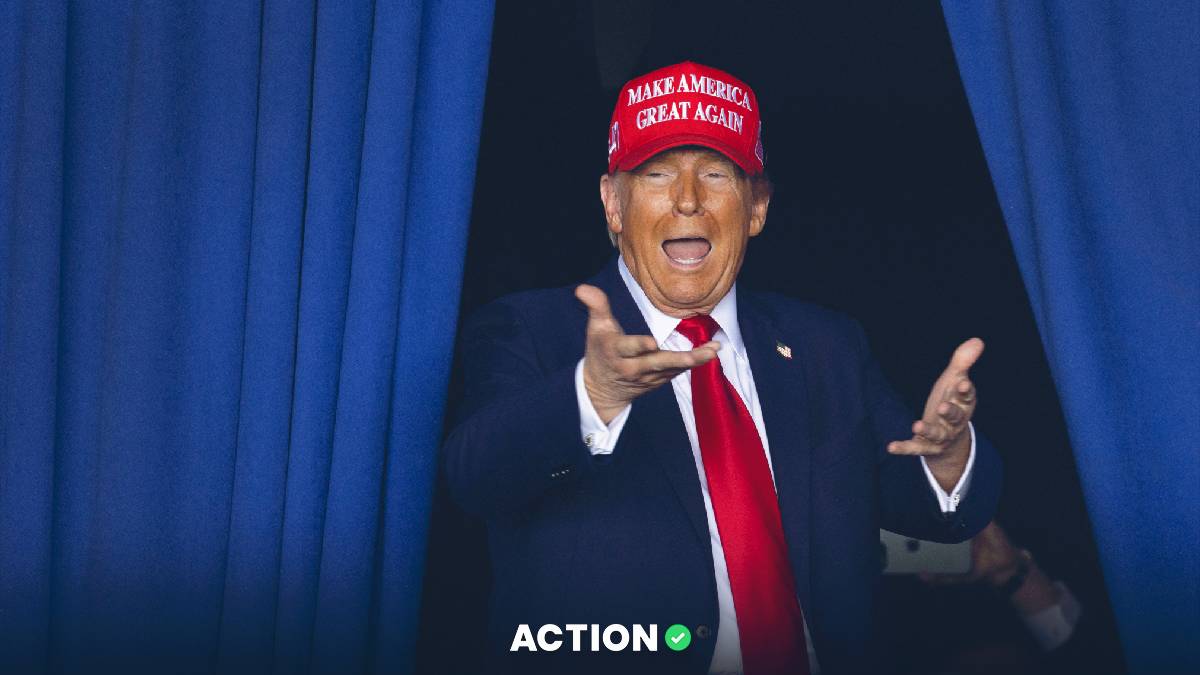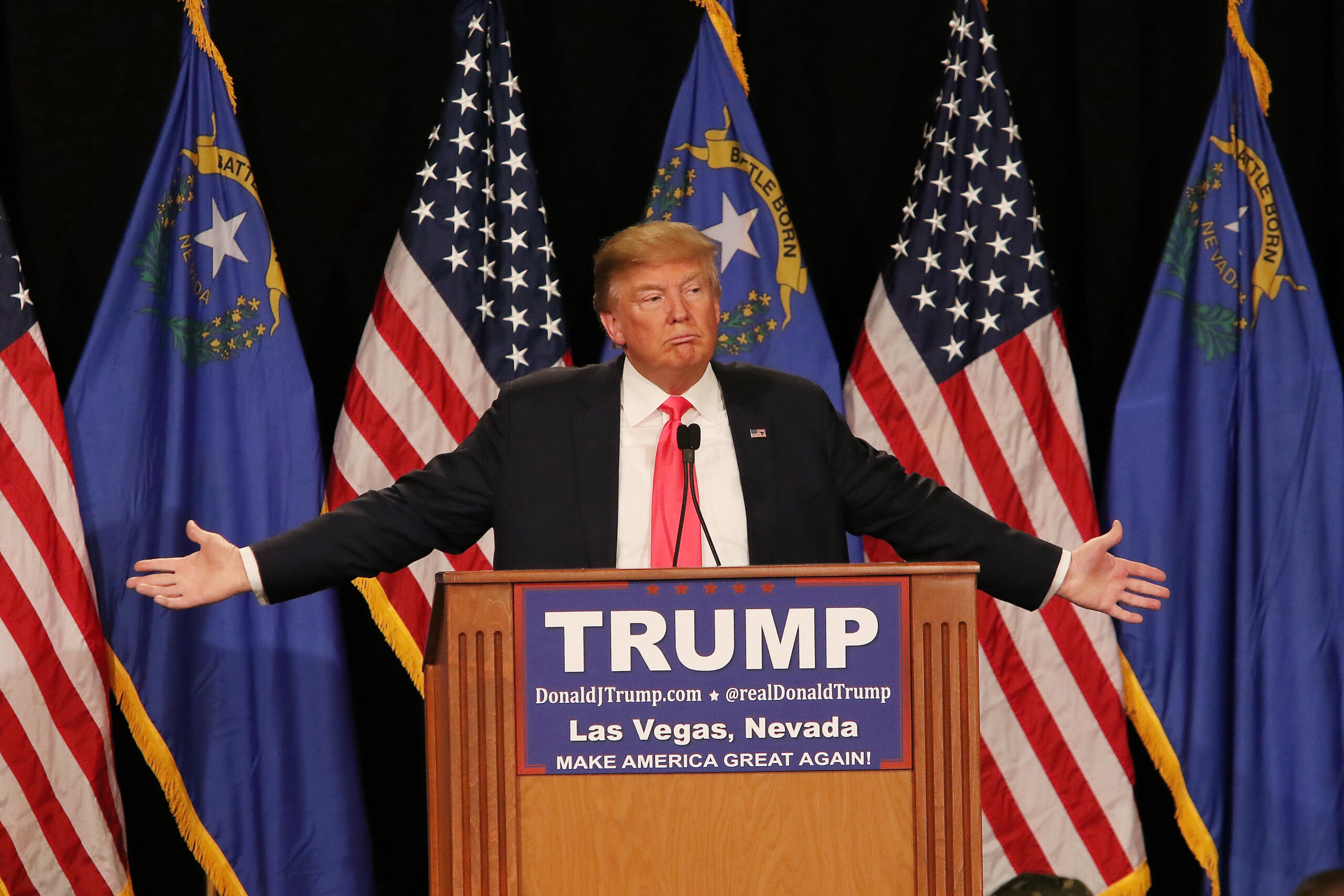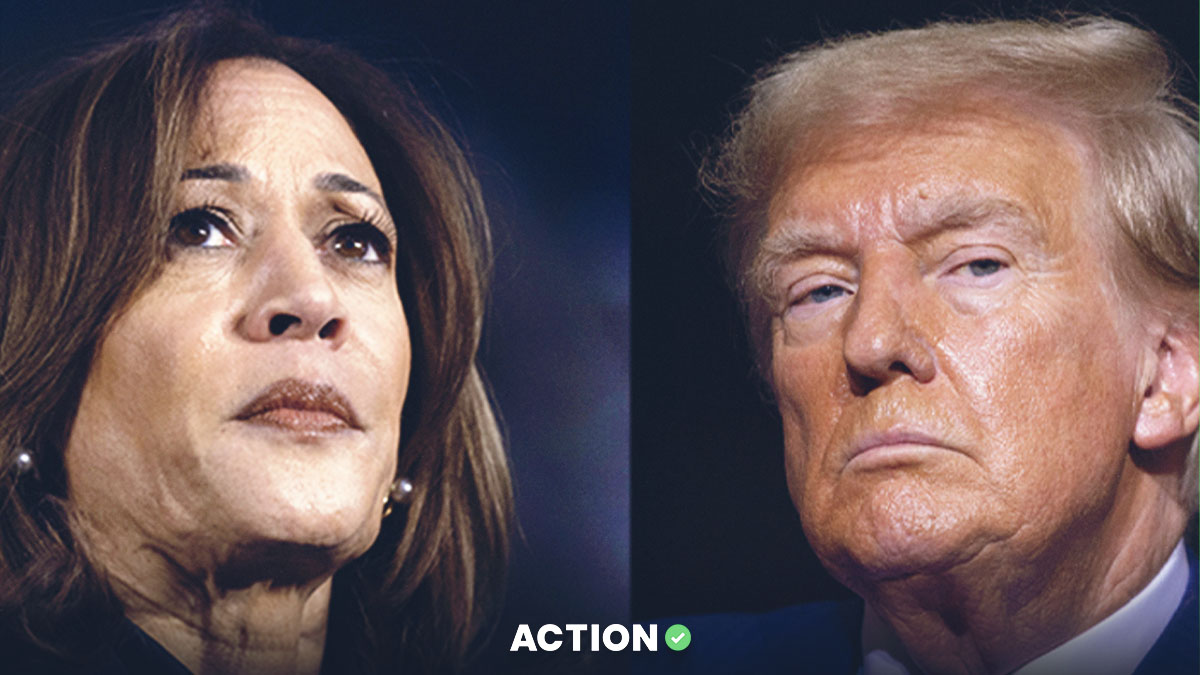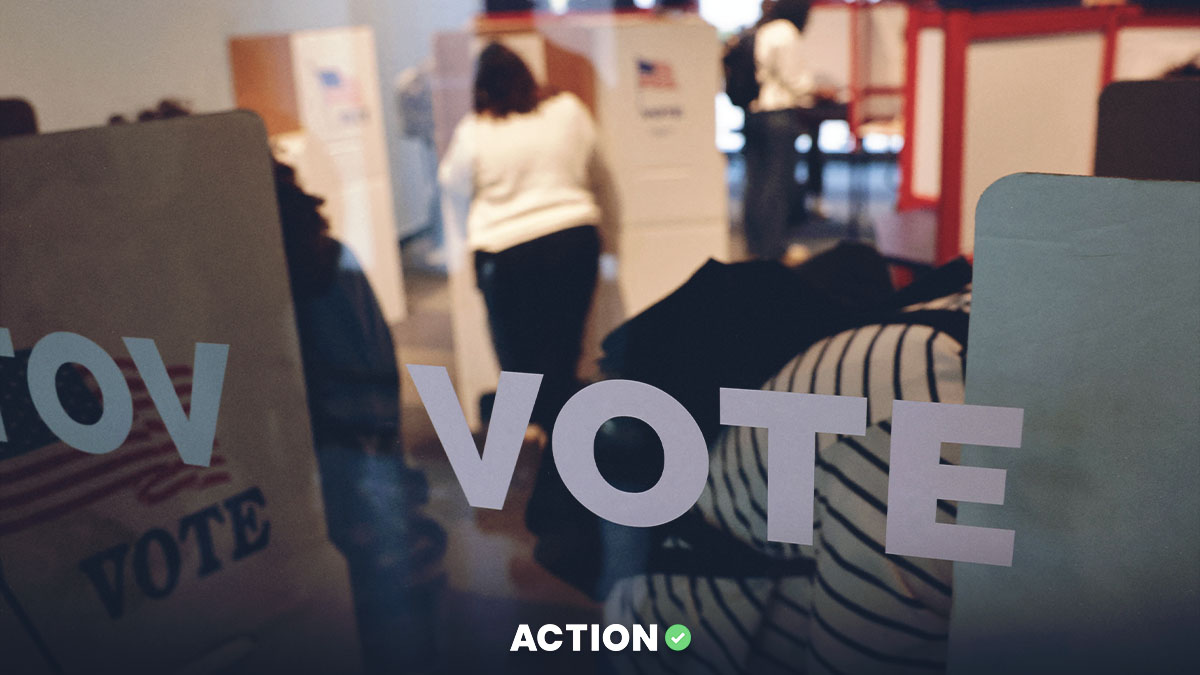The 2024 Democratic National Convention is in full swing, and the enthusiasm emanating this week from Chicago is palpable.
So, it might come as a surprise to learn that over the past few days, former President Donald Trump has moved back in front of Vice President Kamala Harris in the latest 2024 presidential election odds, with news that independent candidate Robert F. Kennedy Jr. could be exiting the race before the weekend.
Let's dive into how those chances to win have changed this week and what that means for the odds-based presidential election predictions for November.
2024 Presidential Election Odds, Predictions
| Presidential Candidate | Election Odds | Chance to Win Election |
|---|---|---|
| Donald Trump | -118 | 51.28% |
| Kamala Harris | -105 | 46.15% |
| Robert F. Kennedy Jr. | +10000 | 0.91% |
| Nikki Haley | +10000 | 0.91% |
| Hillary Clinton | +20000 | 0.37% |
| Michelle Obama | +20000 | 0.37% |
Odds are according to BetMGM in the United Kingdom. The "chance to win the election" percentages are based on implied probabilities with the vigorish removed. Gambling on elections is not legally allowed at sportsbooks in the United States.
There are seemingly two major pieces of news at play that have Trump as the betting favorite over Harris once again in the 2024 presidential election — the state of the American economy and the state of Robert F. Kennedy Jr.'s presidential campaign.
On the first note, a report on Wednesday that the US created 818,000 fewer jobs over the 12-month period ending in March than previously reported was bad news for Vice President Harris and the Biden administration. Harris and Trump had been dead-even at -110 odds for each before the report, with the news resulting in Trump taking back the lead.
Harris first moved in front of Trump two weeks ago, on August 8, when she became a -118 betting favorite, with Trump -105 at the time. Harris had been as big as a -137 favorite over this past weekend, before her odds steadily declined this week.
Harris had been a -125 favorite before the start of the Democratic National Convention on Monday, with Trump +100 heading into the week. Late Monday night and into early Tuesday morning, the odds-based presidential election predictions moved to the aforementioned Trump -110 / Harris -110, and then the odds moved once more early Wednesday morning to their current Trump -118 / Harris -105.
The second bit of news that will likely shape presidential election odds over the next few days is a report that Independent candidate Robert F. Kennedy Jr. is on the verge of dropping out of the race and will likely endorse former President Trump. At the moment, RFK Jr. remains on the election betting odds at 100-1. One assumes that if and when he does formally drop out of the race, the bulk of that implied probability — low as it is — will transfer to Trump, perhaps adding another percentage point to his chances to win the election.
Donald Trump Presidential Election Odds
Former President Donald Trump is the betting favorite to win the 2024 presidential election, with Trump's current odds at -118. Those odds predict a 50.06% chance of Trump reclaiming the White House in November.
Kamala Harris Presidential Election Odds
Vice President Kamala Harris now trails former president Trump in the 2024 presidential election odds, with Harris -105 as of Wednesday night. Harris has a 46.15% chance to win the election based on her current odds.
Of course, you might notice that the odds of Trump or Harris winning the election do not add up to 100% — in fact, they only add up to 96.21%. The remaining 3.79% of implied probability is scattered among Nikki Haley, Robert F. Kennedy Jr., Michelle Obama and Hillary Clinton.
None of those four are actual, viable 2024 presidential election candidates, but they remain on the board because oddsmakers know some people will bet on them. And if someone is willing to make a bet that has very, very, very, very, very little chance of cashing, there's probably someone out there who will take that bet.
The odds of RFK Jr. winning the election will probably get even worse later this week, as his campaign will reportedly come to an end on Friday. The question will be whether he decides to endorse former President Trump — and how enthusiastic that endorsement will be, if it is coming.
2024 Presidential Election Predictions: Odds on Which Party Will Win
| Party | Odds | Chance to Win |
|---|---|---|
| Democrats | -110 | 49.53% |
| Republicans | -110 | 49.53% |
| Independent/Any Other Party | +10000 | 0.94% |
Interestingly, the odds on which party will win the 2024 presidential election are no longer directly correlated to the odds of Harris or Trump specifically winning, which had been the case for the past month. As of Wednesday night, the Democrats and Republicans are both -110, a 49.53% chance for either winning the election, with an independent or third-party candidate having a less than 1% chance, based on the odds.
That -110 split on either side of the Democrats and the Republicans reflects where the Harris and Trump odds were earlier this week, but it's not a 1:1 comparison of where those odds are today. We'll see if that changes as the week rolls on.
2024 Presidential Election Predictions: Odds for Winning Party of 2024 Popular Vote
| Party | Odds | Chance to Win |
|---|---|---|
| Democrats | -455 | 74.77% |
| Republicans | +275 | 24.32% |
| Independent/Any Other Party | +10000 | 0.90% |
As for the popular vote, the Democrats have moved from massive -700 favorites down to -455, which equals a 74.77% chance of earning the most votes across the country. The Republicans are +275 to win the popular vote, a 24.32% chance. Earlier this week, the Republicans were +350.
The Democrats have won seven of the past eight popular votes and four straight popular votes, each of those by at least 2%. That margin was 4.45% in 2020, 2.09% in 2016, 3.86% in 2012 and 7.27% in 2008.
The popular vote is a reflection of national sentiment and often aligns with presidential election polling about the two major candidates, but it does not decide the election. Instead, the United States presidential election is decided by which candidate wins the 270 electoral votes necessary to win the Electoral College.
Electoral votes are allocated on a state-by-state basis, based on the number of members of the House of Representatives, plus the two members of the Senate in each state, with Washington, D.C. also having three electors, for a total of 538 electoral college votes.
That means that 270 electoral votes is the minimum number needed to win the majority of the votes. In the exceedingly rare event of a tie in the Electoral College, the House of Representatives determines the President, with each state having one vote, and the Senate determines the Vice President.









